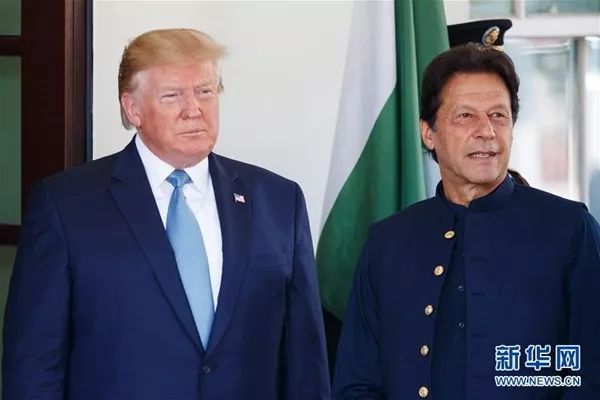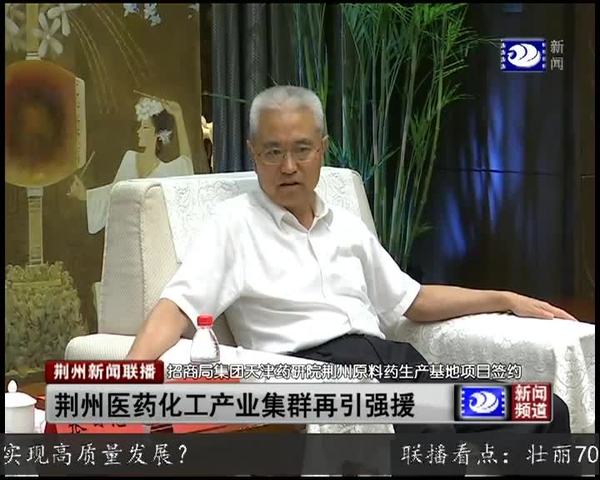近期,香港由于少数极端示威者的暴力违法行径而动荡不安,成为中国乃至世界舆论关注的焦点。

7月27日香港元朗非法集会上,极端示威者与警方爆发暴力冲突。
在不少西方媒体避重就轻、以偏概全地报道香港发生的事情时,一位英国学者却头脑清晰地对香港问题作出了客观公正的分析。
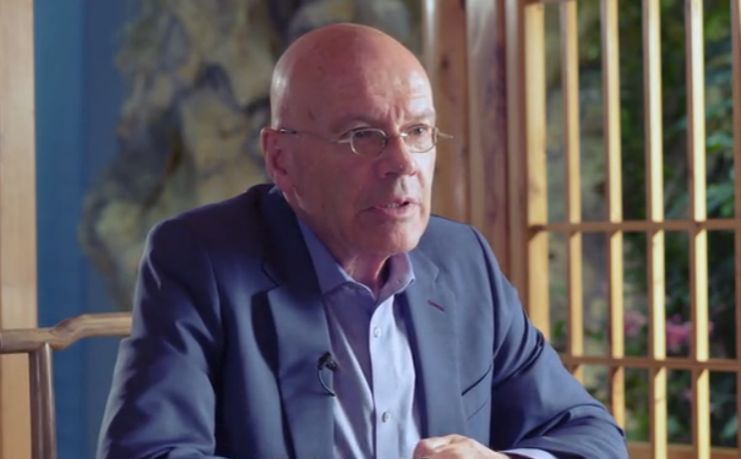
英国学者、中国问题专家马丁·雅克
在接受观察者网专访时,英国学者、中国问题专家马丁·雅克(Martin Jacques)破除了有关香港讨论的谬论,一针见血地点出了香港困境的关键原因所在,并给出了自己的对策。
香港曾繁荣过,因为它走运
马丁·雅克指出,现在香港有这么一种看法,说回归以前,香港经济繁荣是因为它很聪明、很自由,因为它可以顺应形势,因为它被英国管辖等等。
但他认为,在很大程度上,这是对历史的一种严重误解。
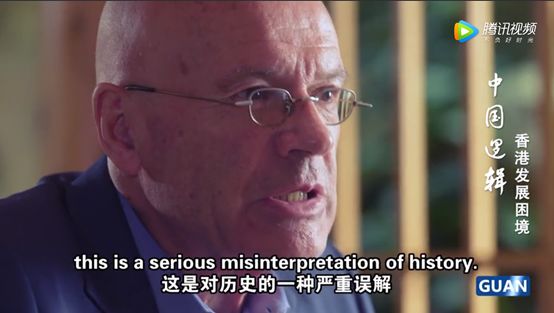
香港在上世纪70年代末和1997年回归之间表现不错,那仅仅是因为它走运了(it got lucky)。
他是这样分析的:
It got lucky because Chinese mainland in 1978 started to open up, bit by bit, step by step. It didn't open up fully until after the WTO agreement in 2001. So while it was still opening up in a piecemeal fashion, Hong Kong could take on some of the functions Chinese mainland otherwise would have done.
说它幸运是因为中国内地从1978年起开始实施改革开放,一点点一步步,一直到2001年加入WTO后,才完全开放。所以在中国内地缓慢开放的过程中,香港就承接了本应该可以在中国内地做的很多事情。

举个例子,假如一家西方公司想进入中国内地市场,最便捷的落脚点肯定是香港。
因此,雅克把香港比作中国内地的前方办公室,获益甚丰。
It worked like the front office in some senses for Chinese mainland. And so Hong Kong was the beneficiary of being able to do these things.
香港就像是内地的前方办公室,从这段历史中获益良多。
所以,香港的腾飞并不是因为它很聪明,而是因为太走运了。
They got lucky not because of the British, they got lucky because of China and the role that China was performing.
他们的运气不是英国人给的,而是因为中国和中国在国际舞台上的作用。
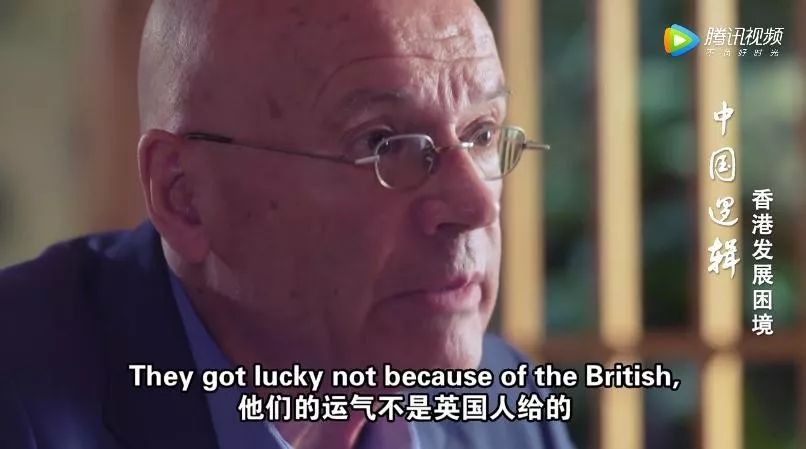
而随着中国加入WTO,中国内地慢慢开始融入国际市场,现在外国公司想开拓内地市场,它可以直接去上海、北京、广州、深圳等任何地方,完全不用去香港。
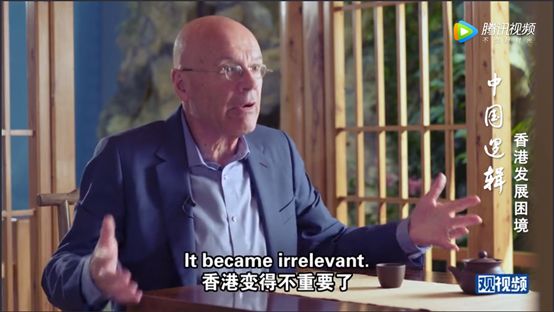
所以,使香港在过去成功的因素不复存在了,香港必须在1997年以后重新找到自己的定位。
So it wasn't Chinese mainland's fault that this happened, this was a change of circumstances in the relationship between the mainland and Hong Kong.
说香港回归后没民主,太虚伪
雅克也提到,英国还无端指责,认为1997年以后香港出现问题是因为中国没有在香港实现真正的民主。
在雅克看来,这种说法是典型的英式虚伪(British hypocrisy)。
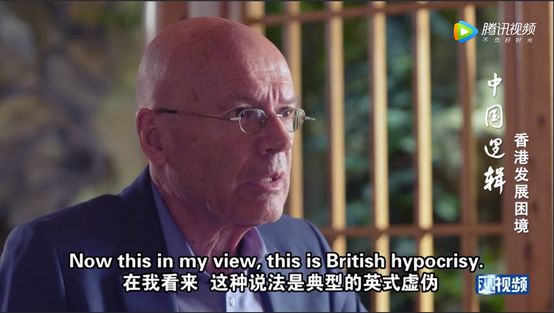
他说,英国统治香港155年来,香港人连民主的影子都没见到过(there was never a semblance of democracy)。
Did they ever introduce universal suffrage? Did they ever talk about universal suffrage? Not a word of it until after the handover agreement, and then with Chinese rule looming, it became essential that Hong Kong was democratic in a Western-style fashion. This was hypocrisy.
他们给了香港人民普选权吗?他们跟香港人探讨过普选权吗?一点儿都没有,直到中国开始收回对港主权的时候,他们才开始叫嚣,香港必须采取西方民主体制,太虚伪了。
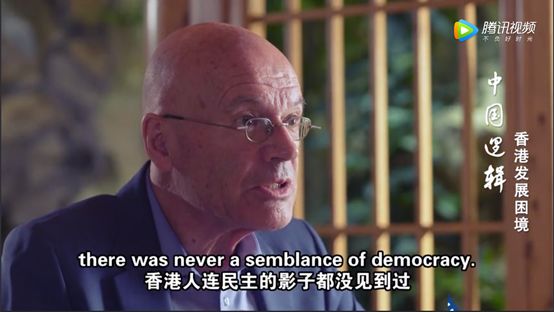
香港的困境
在引出香港存在的问题之前,雅克称赞了“一国两制”所体现出的智慧。
I think that “one country, two systems”, which was a brilliant solution to the problem of Hong Kong, a civilization state solution to the problem, a nation state would never think of those terms.
我认为“一国两制”是解决香港问题非常智慧的方案,只有文明型国家才会想出用这种办法来解决问题,民族国家绝不可能这么想的。

但他也指出,这个方案的长远目的,是为了维护国家的长期统一,而不是让香港与内地完全割裂。
The project in the longer run is clearly to create a more unified country. It's not to just keep the two places entirely separate.
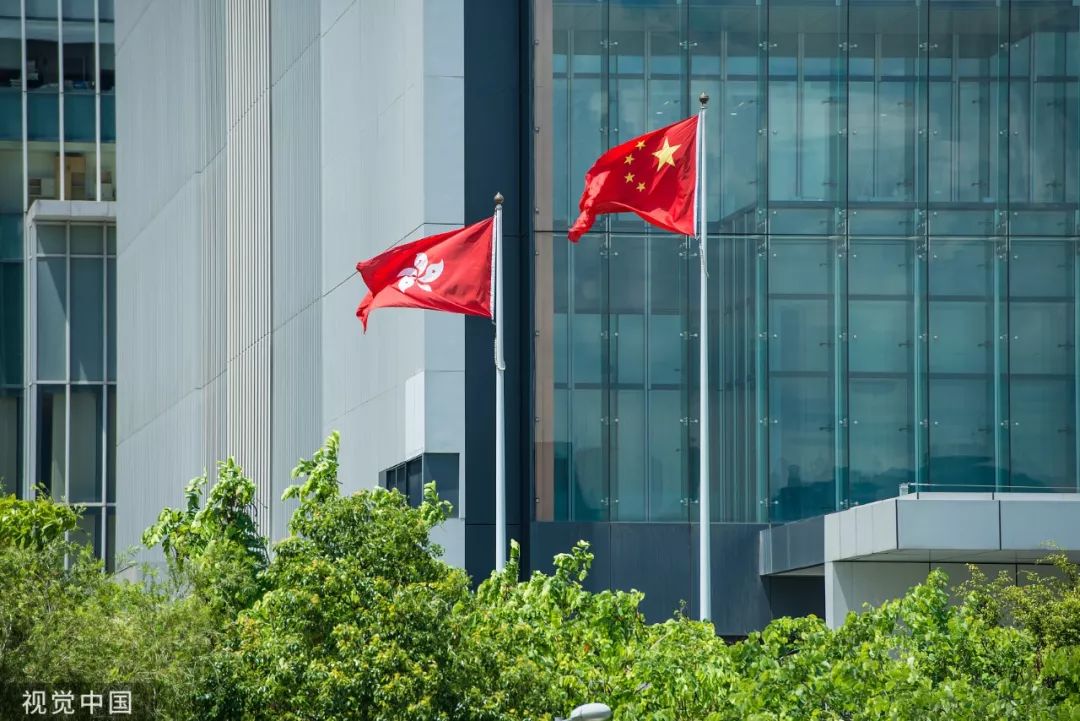
他认为中国现在面临的一个难题是,它对香港回归的反应。
在1997年,中国那时才刚刚对世界开放,还有很多声音质疑中国政府会怎样掌控香港,所以那时中国政府最自然的反应是要强调“两制”。
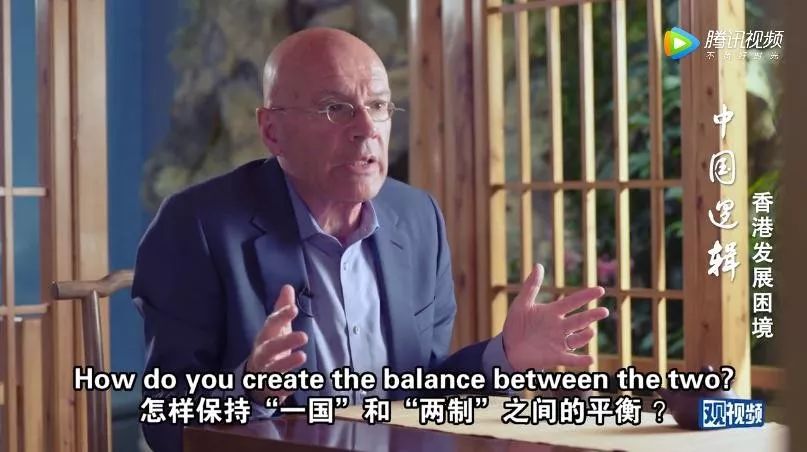
香港回归后,雅克在香港呆了两年半的时间,他发现香港与回归前几乎没有什么变化。
And I remember being surprised that virtually the only evidence of any Chinese presence, visible presence in Hong Kong, was one Chinese flag flying over one of the buildings near the harbor. Essentially there was not much change. It just carried on in the old form.
我非常惊讶地发现,唯一能体现香港属于中国的证据,是在港口某大楼上的五星红旗,其他几乎没有任何变化,一切都跟原来一模一样。

但雅克认为,这其实会带来两个问题。
第一,香港的治理源自殖民政府。
It's set up in a colonial manner. It's a kind of executive. There's no political leadership. There is no political sense of direction set by colonial administration because that's not the job of a colonial administration. That would have been done back in London in those days.
它的机构架设都是殖民化的,是执行层面的,并没有强有力的政治领导。殖民政府对香港的政治治理方向并不关心,因为这就不是一个殖民政府该操心的事,在以前,这都是英国伦敦的事。
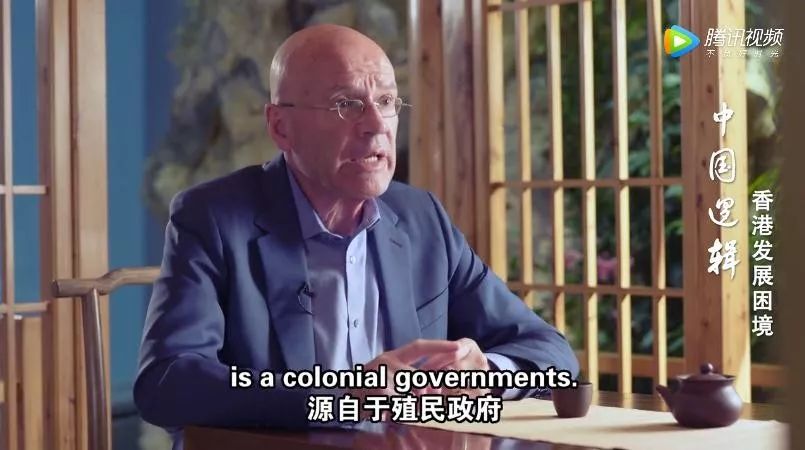
第二个问题是香港的经济。
雅克尖锐地指出,一直以来英国喜欢吹嘘香港的经济是多么繁荣,富有竞争力,但这都是胡说。
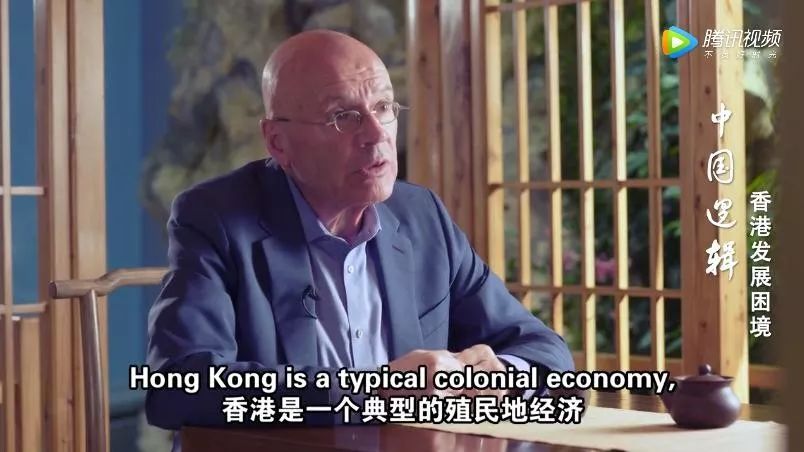
Hong Kong is a typical colonial economy. It is not a competitive economy. It's a monopolistic economy. It basically preferred and empowered the tycoons to run Hong Kong and to divide up the spoils between themselves, above all in the field of property where most of the money was made.
香港是一个典型的殖民地经济,没什么竞争力,是一个垄断型的经济。几个商界巨头垄断了香港经济,比如在香港最赚钱的房地产领域,利润就在他们几个之间分。
This is an oligopolistic and monopolistic economy that has to be changed. But unfortunately not nearly enough changes have taken place.
这种少数垄断或者独断的经济,必须改变。可惜的是,这样的改变还没有发生。
香港未来,路在何方?
雅克认为,要摆脱困境,中国政府必须要打破香港现状,允许香港对上述两个问题做出必要的改变,采取另一种管理方式,采取一种更开放的经济模式。
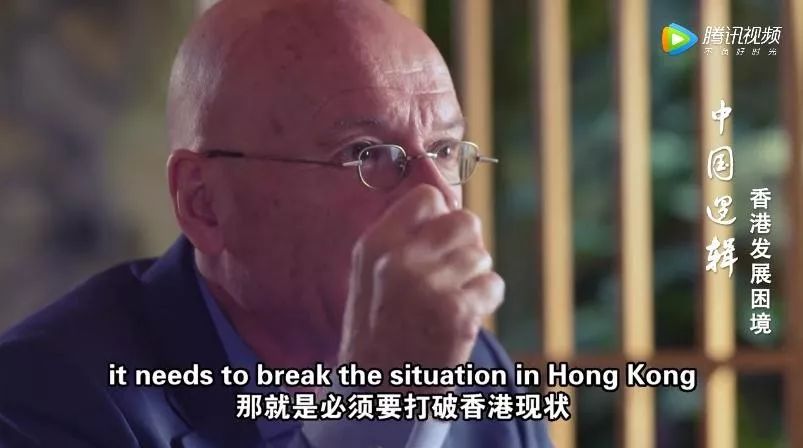
对此,雅克拿深圳与香港进行比较。曾经,香港是深圳学习的范本,但几十年后,深圳已经今非昔比了。
Shenzhen has made absolutely electrifying progress. It is probably the technological center of China. It is second only to Silicon Valley in its competence and innovation.
深圳的变化可以说是天翻地覆,它现在是中国的科技中心,在科技竞争力和创新方面仅次于硅谷。
而香港,什么进步都没有。香港人讨论过这些发展方向,但完全没有任何进步。

雅克认为,应该把香港融入国家的总体发展规划当中,这样香港人才有归属感。
Hong Kong, rather than just thinking of itself as a part from China, needs to think of itself more in terms of being part of China.
这样香港才不会把自己当做游离在外的一部分,而是积极地把自己当成中国的一部分。
而雅克看到的现状是,香港不少人觉得自己不一样,“我们不是中国人”。
他认为,这是因为在过去的155年里,他们从未了解过中国。
尽管他们说的是中国的方言粤语,但他们确实对中国内地一点都不了解,对香港的“北方”很无知。

他们一直都是向西看,向英国、美国、加拿大看,但他们从未向北看,向内地看。
They were ignorant about the north. Their lines of vision were all westwards to Britain or the west to the United States, later Canada etc, and never north to Chinese mainland.

